PRISM: Pride · Respect · Inclusion · Support · Momentum

All events will be held virtually via Zoom and are free to attend.

All events will be held virtually via Zoom and are free to attend.
The ASCLS Diversity Advocacy Council (DAC) invites you to attend a viewing of the documentary, The Healthcare Divide, to watch it together virtually with other ASCLS members.
FRONTLINE and NPR investigate the growing inequities in American healthcare exposed by COVID-19. The Healthcare Divide examines how pressure to increase profits and uneven government support are widening the divide between rich and poor hospitals, endangering care for low-income populations.
The movie runs 54 minutes. There will be opportunities to chat during the movie, as well as a brief follow-up discussion at the end.
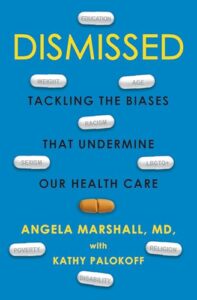 Book Club – Dismissed: Tackling the Biases That Undermine our Health Care
Book Club – Dismissed: Tackling the Biases That Undermine our Health CareDismissed: Tackling the Biases That Undermine our Health Care
Here’s the uncomfortable truth: Race, gender, sexual orientation, age, body size, income, and other cultural factors have a significant bearing on whether you will be diagnosed and treated correctly. The good news is regardless of whether you are a patient, healthcare provider, or administrator, there are steps you can take today to combat medical bias. Online discussions of one chapter per day will take place the week of January 20.
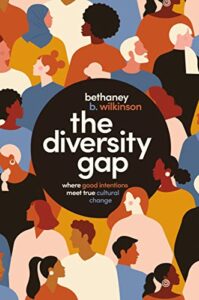 Book Club: The Diversity Gap
Book Club: The Diversity GapJanuary 7-14
The Diversity Gap: Where Good Intentions Meet True Cultural Change
The Diversity Gap is a fearless, groundbreaking guide to help leaders at every level shatter the barriers that are causing diversity efforts to fail. Combining real-world research with honest first-person experiences, racial justice facilitator Bethaney Wilkinson provides leaders a replicable structure to foster a diverse culture of belonging within your organization. Online discussions of one chapter per day will take place the week of January 7.
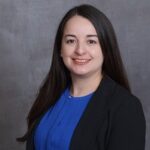 Candid Conversation with Letycia C. Nuñez Argote
Candid Conversation with Letycia C. Nuñez ArgoteMonday, January 15, 8 pm ET
Letycia C. Nuñez Argote, PhD, CPH, MLS(ASCP)CM, is ASCLS Diversity Advocacy Council Past Chair and Secretary of ASCLS-Kansas. She also serves as Clinical Associate Professor with the department of Clinical Laboratory Sciences at the University of Kansas. She identifies as a white-passing, non-disabled, cis-gender, heterosexual person, who is a proficient user of English as a second language due to her fully bilingual, private, K-12 education. These traits intersect with her status as a child from a multigenerational household, a foreign-born Mexican, and a Latina whose current permanent resident status in the United States was achieved after nine years holding a work visa. The conversation will be moderated by Emilia Marrero-Greene, MEd, MT(AAB), M(ASCP).
Tuesday, January 16, 7 pm ET
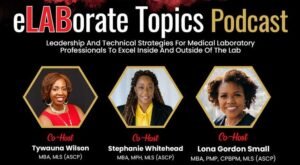
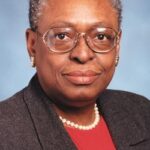 Glenda Price Diversity in Leadership Award Online Fundraiser
Glenda Price Diversity in Leadership Award Online FundraiserJanuary 12-17
This award honors Glenda Price, the first African American president of ASCLS (formerly ASMT), and was created to promote diversity and inclusion within the ASCLS leadership.
You can help in three ways:
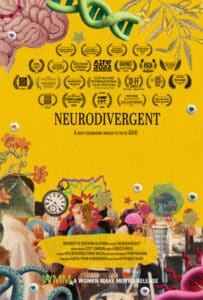
Saturday, September 23, 6pm ET
The ASCLS Diversity Advocacy Council (DAC) invites you to attend a viewing party for the movie, Neurodivergent, to watch it together virtually with other ASCLS members.
Neurodivergent is a profoundly personal mixed media experience inside the ADHD mind of director Afton Quast Saler. Follow the filmmaker’s journey as she discovers her ADHD diagnosis during the height of the COVID-19 pandemic. From Post-it notes to magnets, keys, pens, rubber bands, and receipts, the unorganized chaos of a junk drawer is the perfect representation of what Afton’s brain feels like every day.
The movie runs 25 minutes. There will be opportunities to chat during the movie, as well as a brief follow-up discussion at the end.
Download the 2023 PRISM Movie Night flyer and help spread the word to colleagues, students, and friends.
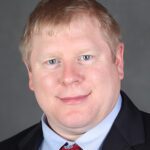 2023 Candid Conversation with Perry Scanlan
2023 Candid Conversation with Perry ScanlanDr. Scanlan was born premature weighing 2lbs 13oz. He was diagnosed with Little’s disease, specifically spastic diplegia, a condition affecting his lower legs and hips. He is chair of the Department of Allied Health Sciences at Austin Peay State University in Clarksville, Tennessee. He is a professor with tenure and the program director of the Medical Laboratory Science and Phlebotomy Programs.
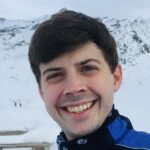 2023 Dynamic Discussion
2023 Dynamic DiscussionDynamic Discussion with Thomas Burke
Professionals with disabilities must make choices based on the realities of their own constraints, as well as societal restrictions and even discrimination. Thomas will discuss his personal experience of disability and how it shaped his career arc from a microbiologist to a specialized food safety expert. He will focus on how he used models of disability to form his identity as a person with a disability and take decisive actions that maximized his career goals in the life sciences. Themes will include disability theory, disability within DEI initiatives, and reasonable accommodation.
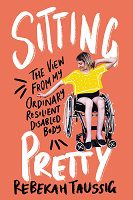
Growing up as a paralyzed girl during the 90s and early 2000s, Rebekah Taussig only saw disability depicted as something monstrous (The Hunchback of Notre Dame), inspirational (Helen Keller), or angelic (Forrest Gump). None of this felt right; and as she got older, she longed for more stories that allowed disability to be complex and ordinary, uncomfortable and fine, painful and fulfilling.
Writing about the rhythms and textures of what it means to live in a body that doesn’t fit, Rebekah reflects on everything from the complications of kindness and charity, living both independently and dependently, experiencing intimacy, and how the pervasiveness of ableism in our everyday media directly translates to everyday life.
Disability affects all of us, directly or indirectly, at one point or another. By exploring this truth in poignant and lyrical essays, Taussig illustrates the need for more stories and more voices to understand the diversity of humanity. Sitting Pretty challenges us as a society to be patient and vigilant, practical and imaginative, kind and relentless, as we set to work to write an entirely different story.
Demanding More: Why Diversity and Inclusion Don’t Happen and What You Can Do About It, by Sheree Atcheson
Kyle Riding, ASCLS Secretary-Treasurer, will interview ASCLS Past President Scott Aikey. Scott is an inspirational leader and openly gay man. During his time in ASCLS and the clinical laboratory profession Scott witnessed a multitude of changes in how members of the LGBTQ+ community were seen and cared for by others. His courage, compassion, and grace towards everyone he encounters has helped pave the way for a more inclusive organization that does not require someone to hide their true selves from their colleagues.
Caste: The Origins of Our Discontents by Pulitzer Prize-winning author Isabel Wilkerson
Dr. Robin L. Eubanks, associate professor at Rutgers University Biomedical and Health Sciences – School of Health Professions in the Department of Interdisciplinary Studies, an interactive discussion on cultural humility and health disparities.
Cheryl Caskey, past president of ASCLS, interviewed Glenda Price, first African American president of ASCLS. Glenda was considered a very inspiring mentor and leader to many. She was often the first African American or first women (and sometimes both) to hold a variety of leadership positions throughout ASCLS and academia. Some who knew her would say she was a trailblazer who spoke quietly, with honesty and measured words and tones.